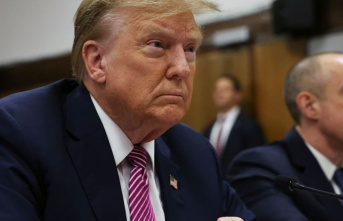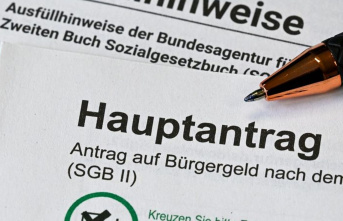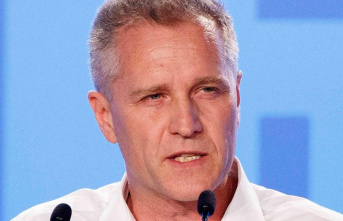the Ministry of The Interior has given in almost two decades of a business of 70 million per year to Telephone without taking out public tenders that would allow the competition of other companies. The management of the communications of the Police and the Civil Guard (that add up to 15,000 mobile lines and 70,000 access points, fixed) has been breached during this time the basic principle of free competition, that the successive laws of public procurement enshrined since 1995. Several experts consulted by this newspaper qualify the situation of irregular and it is not explained how he has been able to continue for so long.
MORE INFORMATION
DOWNLOADABLE See the document with the response of Interior Telefónica was awarded the bulk of the communications of the State by 134,2 millionThe anomalous situation has been maintained until a few weeks ago. In December we resolved the first public competition for the recruitment unified communication of both Bodies. A contest declared secret, that there are no known conditions or tenderers and that is not even mentioned in the Platform of Public Procurement where you can find all the tenders of the Administration. Telefónica has won the three batch of National Police, while the four Guardia Civil were divided between Orange, Telefónica, Vodafone and BT, according to industry sources.
The irregularity of the provision of Police services recognizes the Ministry of the Interior in response to a request for information under the Transparency Law made by this journal. “There is No contract, nor by the mode of direct recruitment or by public tender,” says the document, dated last October, which adds that the services pay Telephone “by billing fixed”.
The experts consulted, who asked for anonymity, it does not explain this form of to pay a service. The Police, they say, is subject to the Public Procurement Law and any contract for services must be submitted to public competition, whether it is opened as if it is restricted. The response of the Interior says that the Police have 6.421 mobile, 30.322 fixed lugs and a bulk of Internet data of 1.355 Mbps. He adds that all the mobiles with access to data have a flat rate. A spokesman of Interior said that this service costs € 33 million a year.
In the case of the Guardia Civil, Interior, ensures that the 34 million euros per year on average will assume the running costs of telephony (8.821 mobile terminals, 122 terminals, satellite and 40.633 access points fixed) has been paying “through payments for cash advance fixed.” A method that also criticize the university teachers consulted. The imprest cash is used to pay expenses of meals, transportation, or material that arise unexpectedly. Should not be justified in advance, but that gives accounts of his employment at the end of the year, when sent to the Court of Accounts.
The Royal Decree that regulates this mode of payment specifies that the global amount of these advances may not exceed 7% of the total credits of the chapter destined to current expenditure on goods and services in the ministry or autonomous agency. The current expenditure on goods and services only of the Guardia Civil in 2019 amounting to 330,15 million euros, so that 34 million of the telephone bill exceeded the limit of 7%.
These payments have been supervised by the General Intervention of the Administration of the State, which depends on the Ministry of Finance. Sources in the department confirm the irregularity of the system with which the Interior was paid to Telephone costs telephone and data of its security forces. According to explained sources of the Intervention, the payments would be covered by an old contract, probably before the privatization of Telefónica, which has been prorrogándose tacitly until a few months ago.
The interveners considered that the expenditure was not subject to previous inspection to be of a periodic nature and because it was already audited the first year after the signing of the contract. That would explain that, despite non-compliance with the legislation, the system has been going the controls for close to 20 years. To this is added the fact that the Court of Auditors has not prepared any report at this time on the expenses of Police and Civil Guard. Neither has planned for this year 2020. Both the Interior and the Phone refused to inform about the year of the signing of the contract, and explain why the anomalous situation has continued until last march, when finally the Government decided to put an end to it.
Interior decided to launch a contest that will give service to Police and Civil Guard for five years with an approximate value of 268,9 million euros. As announced by the department itself that leads Fernando Grande-Marlaska in a press release. The decision was adopted in the Council of Ministers on 15 march. According to that communication, the joint tender was intended to save eur 30 million per year. Neither the economic report of the tender or the specifications or any other information are publicly available, since that Interior has been declared secret. To questions from this newspaper, Interior reported that finally the award has been made for 153,8 million euros, with a reduction of 40% on the estimated value of tender.
Telefónica leads the government contracts
In 2017 Telefónica secured 87% of the contracts of telecommunications, which offer the General Administration of the State (percentage that reported 223 million euros), according to the report, Queen, who elaborated every year by the Government. That same year, as contained in the annual report of the National Commission of Markets and Competition, the market share of Telefónica was 30% in the case of the mobile phones and for 51.9% in fixed broadband.
xxx
Currently, the high percentage of penetration of the company in Administration is in decline because of the strength of its competitors, according to sources in the telecommunications sector. Rivals Telefónica still complain about contests such as the recently solved by RTVE, that it was awarded a contract for 30 million euros after setting conditions that were appealed by other companies to understand that the eliminated de facto. The sources point out, however, that the Authorities have opted in recent years by contests more “open” and the consequence has been that it has decreased the share of Telefónica in this market.
The decision of Interior to change the model and offer to the other operators in the telecommunications management of the Security Forces comes two years after two withsimilar courses offered by the Ministry of Defence and the CNI, both by open procedure.
“Before it seemed difficult to assume that a Body of Safety to contract with another that was not Phone and the situation was acrimonious. Were prices subject to a period of time in which he had regulated prices; now it is different. Inner lowers their costs by 45 per cent since the year that comes with the competitive concurrence”, censor sources familiar rate billing fixed that was paid within the Police.
When two decades ago they liberalised the market, the new companies had a display of areas and coverage limited in the Peninsula. However, with age, the ability of the large operators have completed their tour of the country and the coverage of the mobile lines went on to occupy all the territory more than a decade ago. In parallel, the technicians of both Security Forces have recelado of changes of telephone operators by the complexity of the migration of thousands of landlines and mobile phones.
After decades of collaboration, abruptly, last march, the Guardia Civil broke up with Telephone and gave their mobile lines to Vodafone without public assembly, just six months before they fail the contract offered by the Ministry of the Interior. The Armed Institute has not wanted to explain the reasons for their recent and brief change of operator of mobile.
Date Of Update: 07 January 2020, 01:00










